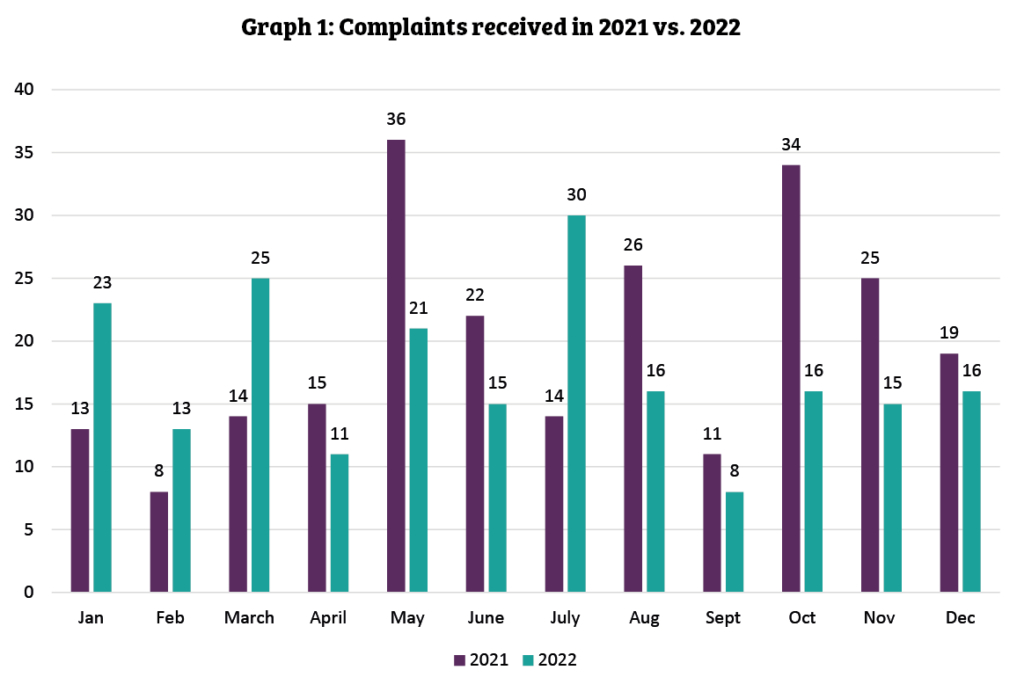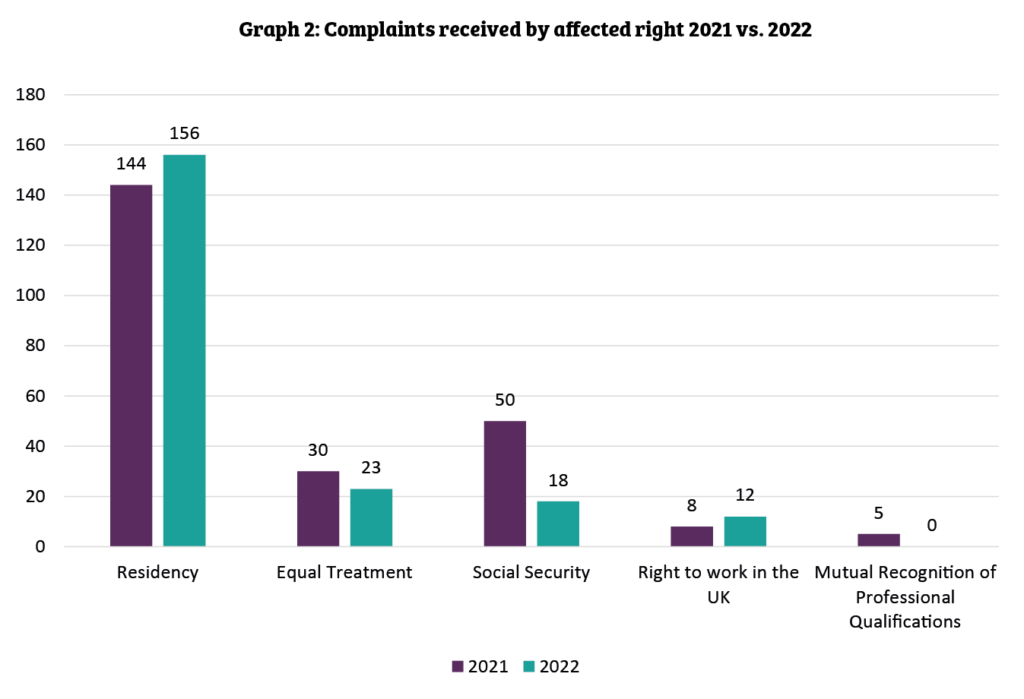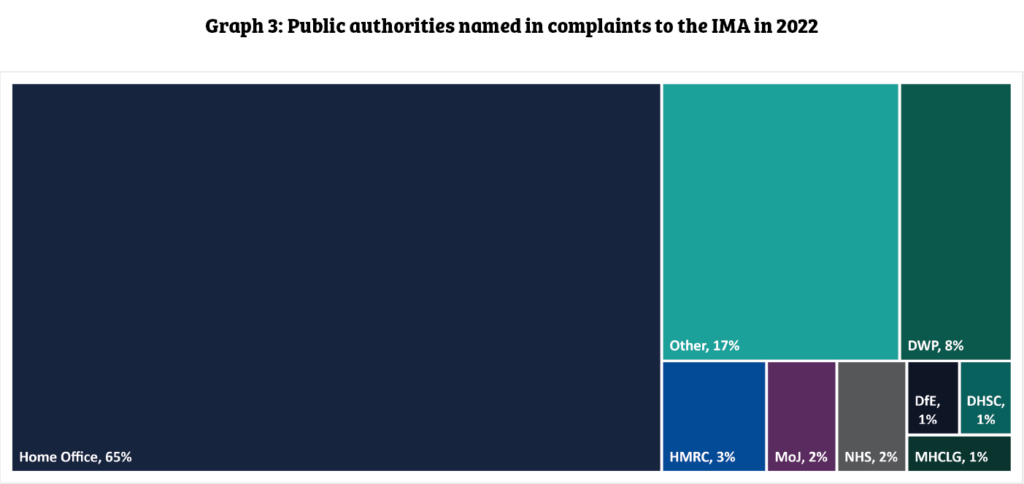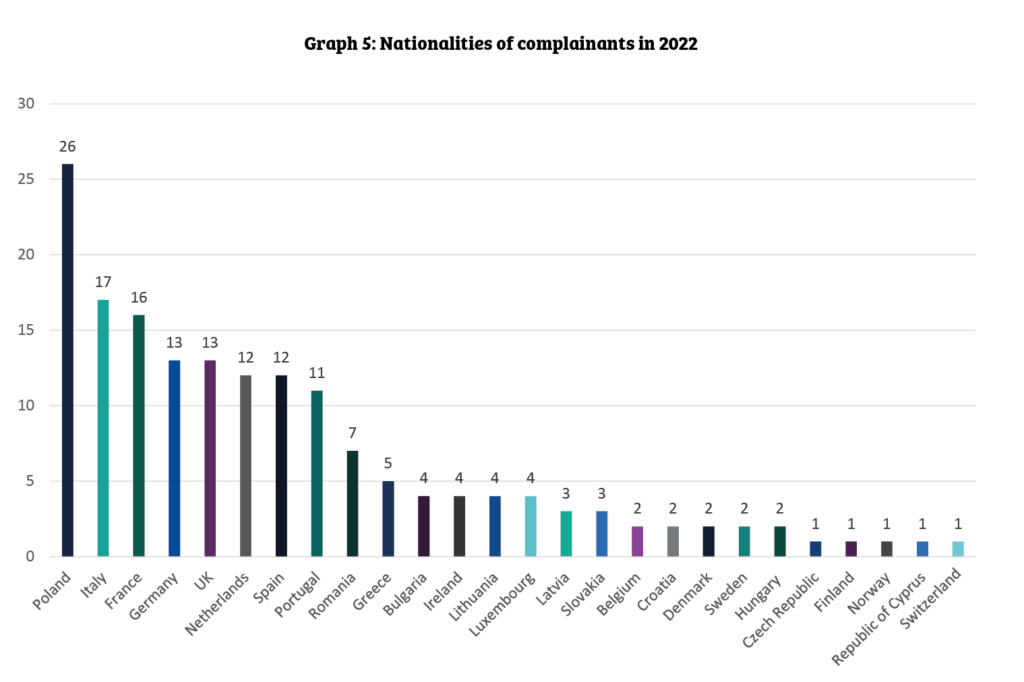The IMA received 209 complaints from 1 January to 31 December 2022. This is slightly lower than the 237 complaints received in 2021.


Graph 2 (above) shows how many complaints have been received in relation to each right
Residency – The right to reside includes the right to enter and exit the UK.
Most of the complaints reported to the IMA related to the right to reside.
The complaints are mainly connected in some way to the UK Government’s EU Settlement Scheme (EUSS), run by the Home Office.
The issues raised in these types of complaints include:
Citizens experiencing long wait times for their EUSS applications, beyond estimated application processing times advised by the Home Office.
Citizens experiencing long wait times for their EUSS Family Permit applications.
Valid ID documents of citizens not being recognised by carriers when travelling to the UK.
Lengthy EUSS administrative reviews and an inability by applicants to obtain updated information as the review progresses.
Work – The right to work, including self-employed work. It also applies to frontier workers; citizens who are employed or self-employed in the UK but live elsewhere.
The issues raised in these types of complaints include ongoing technical issues affecting the View and Prove service which inhibit citizens’ ability to access their proof of status.
Qualifications – the right for qualifications which have already been recognised before 31 December 2020 (or were in the process of being recognised at that time), to continue to be recognised in the UK.
We received no complaints in 2022 relating to this right.
Social Security – Individuals who have lived in both the UK and the EU before the end of the transition period can continue to access pensions, benefits, and other forms of social security.
The issues raised in these complaints include denial and suspension of benefits based upon EUSS status and difficulties applying for proof of national insurance contributions.
Equal Treatment – EU and EEA EFTA citizens and their family members must be treated the same as UK and Gibraltarian citizens when it comes to accessing certain public services and some benefits.
The issues raised in these complaints include denial and suspension of benefits based upon EUSS status and citizens experiencing challenges and refusals at UK borders, relating to EUSS status.

Graph 3 (above) demonstrates that most of the complaints reported to the IMA relate to the Home Office, followed by a smaller group of complaints in the “other” category that are a collective of public bodies, including Local Authorities, Student Finance England, DVLA, DEFRA, and DfT. The third largest group of complaints relate to Department for Work and Pensions (DWP).
In 2021, most complaints related to the Home Office, followed by “other”. However, contrary to 2022, in 2021 the third largest group of complaints related to HMRC (8%), closely followed by DWP (6%).
Graph 4: Where complainants reside
Graph 4 (above) shows where citizens complaining to the IMA in 2022 reside. Most complainants currently reside in England. Those living outside the UK, include complainants who are joining relevant family members already residing in the UK.


Finally, graph 5 (above) shows the nationalities of those who made complaints to the IMA in 2022. In 2022 we received complaints from citizens of 80% of EU and EEA EFTA countries. We are yet to receive any complaints from citizens who are from Estonia, Iceland, or Lichtenstein.
We additionally received 40 complaints from citizens whose nationality was recorded as ‘other’ and not shown on graph 5. These citizens are non-EU/EEA EFTA nationals or dual nationals and made up the largest category of complainants between 1 January 2022 – 31 December 2022.